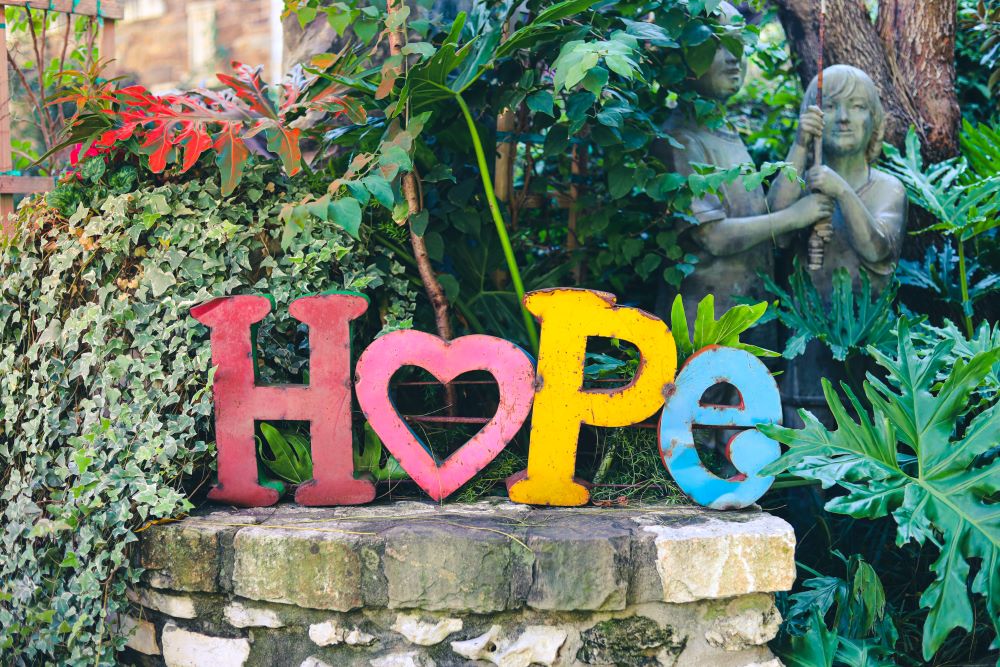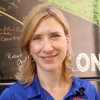
(Unsplash/Carl Hunley Jr.)
The beginning of the 21st century has seen the proliferation of weapons of mass destruction, climate catastrophes unfolding in real time, gun violence becoming the top cause of teen and child deaths in the United States, and a global abyss of separation grow between the rich and poor.
As a Gen Xer, I've spent my entire adult life watching these dangerous and disturbing macro trends gain steam. Each disappointing pivot and every discouraging development has helped to paint a clear picture: It is not going well.
So why is it that I'm feeling more hopeful now than I did 10 or even 20 years ago? You might write it off as part of the job description for a sister, but it has as much to do with framing as it does with my vocation.
In The Prophetic Imagination, Walter Brueggemann defines hope as "an absurdity too embarrassing to speak about, for it flies in the face of all those claims we have been told are facts." By that measure, it helps that in the past several years, I've developed a huge tolerance and appreciation for absurdity. And since embarrassing myself isn't really on my list of concerns these days, I'll offer a few observations about how I got here.
Even when there's literally nothing I can do to help, the value of witness is real and precious.
A place of despair: I've been there
At the turn of the century, my education in community and urban planning opened my eyes to man-made systems and how to design good ones that nurture community and environmental well-being. Since then, I've seen the worst-case scenario of profit-based development become the dominant model in the United States, which we've aggressively pushed out globally. In our market-driven society, technological advancement, efficiency and economic growth reign supreme. Human well-being is, at best, an afterthought.
Disillusionment is something I'm familiar with. I know the dread of moving so far down a wrong path that no course correction seems possible. For most of my adulthood, I lived from a worldview of cynicism, of veiled despair.
That said, in my late 30s, I not only reappropriated my Catholic faith, but I changed my engagement with a suffering world and, in the process, have managed to make hope a practice. While the macro trends still hold, there are also seeds of new life, pockets of sanity and bold new paradigms emerging all over... if one is looking. And these days, I focus a lot of my attention on looking.
Check in with your interior, but don't check out
There's so much noise to contend with today. Our collective attention is either distracted by minutiae or steered toward disturbing stories of violence, environmental degradation and human suffering. There is a hidden emotional and mental toll that this takes on a person.
Our brains aren't wired to process the quantity and speed of information coming at us — it can feel like an assault. These days, managing the demands on our attention looks more like triage than healthy engagement with the world. It is critical to be conscious of how external inputs impact your interior movements.
Even as the planet needs tending, each one of us has a whole interior world that needs to be tended to. Sharpening an awareness of your own triggers and responses to the cognitive dissonance of current events and struggles of daily life is essential to protect the seeds of hope.
Fostering hope involves a careful cultivation of that interior world: managing the fears, nurturing the life and filtering out the doom. What are your coping mechanisms and what so-called inputs should you avoid? For example, I no longer immerse myself in current events by watching daily news the way I once did, but I make a point of knowing what's going on, and that's enough.
There is a fine line, however, between mental self-preservation and choosing privileged negligence by completely disengaging from a suffering world. I remind myself that even when there's literally nothing I can do to help, the value of witness is real and precious. Don't check out.
Advertisement
Talk with people who get it
The pace and the texture of change is relentless, and we are burdened by the need to pay up, to hurry up, to add value, to keep up, to plug in and to be independent. Most of us have deep misgivings about the direction we're going but can't slow down enough to correct course. Moreover, talk about these misgivings is either silent, glossed over or warped by online forums.
It's not an easy pill to swallow that our reality is built on so many lies — and that we have been complicit. According to Brueggemann, "hope is the refusal to accept the reading of reality which is the majority opinion." That means there is a minority who refuses to buy the dominant narratives and courageously tries to discern their way through this crazy world. Find them and talk about it.
Early in the COVID-19 pandemic, it was the silent suffering of people acting like they were fine that inspired me to create Apocalypse Anonymous. Modeled after the Alcoholics Anonymous 12-step fellowship program, it was an experimental support group for people who suspected that they were not "fine." I desperately wanted a forum for myself and others to examine how we cope — or fail to cope — with the impact of crisis and the absurdity of the world we live in. In fellowship, we try to process multiple existential crises, contend with crumbling worldviews, and navigate our daily lives with integrity and meaning. Two-plus years later, this group of strangers has become a close-knit, supportive community of rare authenticity and personal revelation.
American poet Amanda Gorman reads a poem during Joe Biden's presidential inauguration Jan. 20, 2021. One line says: "There is always light, if only we're brave enough to see it." (CNS/Patrick Semansky, pool via Reuters)
Flip the script
For readers not familiar with the term "flipping the script," it's slang for reversing a situation, especially by doing something unexpected. When a dialogue is being dominated by someone else, it's a tactic to regain control. I've found that practicing hope is an empowering way to flip the script. It is an unexpected response that could ultimately cause something good to emerge out of the god-awful trends we're seeing.
Brueggemann puts it another way: "It is mind-boggling to think of the... expression of hope as a way of subverting the dominant embrace of despair." Humans are, after all, co-creators in this world. In fact, we're responsible for the mess we're in. What we express and what we focus on has a marked impact on reality and how it unfolds. Amanda Gorman, the modern-day prophet and poet, said it like this: "There is always light, if only we're brave enough to see it. If only we're brave enough to be it" (The Hill We Climb).
There is nothing to lose
These are biblical times. The mystery that's unfolding will be decisive for the future of humankind. These are extraordinary times — extraordinarily difficult and full of extraordinary possibilities. In 10,000-plus years of human history, what a privilege to be alive now to witness them!
Ultimately, you have nothing to lose by making hope a practice. In the worst-case scenario, you will have courageously stayed engaged. And it's possible that you'll surprise yourself by helping to chart a better course for humanity. Either way, those are odds I can live with.







